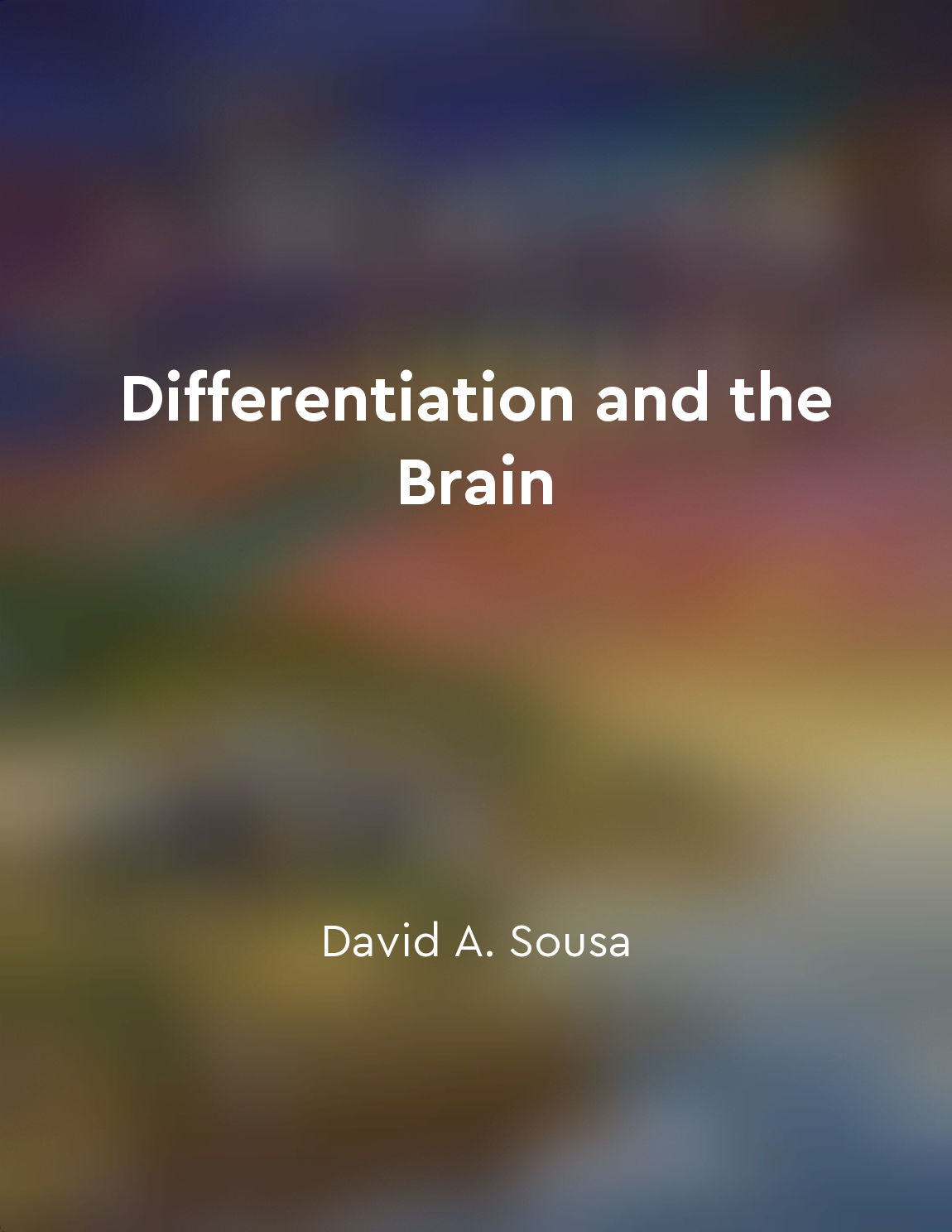The brain responds positively to personalized learning experiences from "summary" of Differentiation and the Brain by David A. Sousa,Carol A. Tomlinson
Personalized learning experiences have a profound impact on the brain's response to academic tasks. When students feel that their learning is customized to their needs and interests, their brains become more engaged and motivated in the learning process. This is because personalized learning experiences tap into the brain's natural tendency to seek out new and challenging experiences. One of the key ways in which personalized learning experiences positively impact the brain is by activating the brain's reward system. When students are presented with material that is relevant to their interests and needs, their brains release dopamine, a neurotransmitter that is associated with feelings of pleasure and reward. This dopamine release not only makes learning more enjoyable for students but also helps to strengthen the neural connections that are being formed during the learning process. Furthermore, personalized learning experiences help to reduce the brain's stress response to academic tasks. When students are presented with material that is too challenging or too easy for them, their brains can perceive these tasks as threats, triggering the release of stress hormones such as cortisol. This can impair students' ability to focus and learn effectively. However, when students are provided with learning experiences that are tailored to their needs, their brains are more likely to perceive these tasks as manageable, reducing the release of stress hormones and promoting a more positive learning environment. In addition, personalized learning experiences help to increase students' sense of autonomy and control over their learning. When students feel that they have a say in how they learn and what they learn, their brains are more likely to engage in the learning process and retain the information being presented to them. This sense of ownership over their learning also helps to boost students' self-efficacy and confidence, contributing to a more positive attitude towards learning.- Personalized learning experiences have a significant impact on the brain's response to academic tasks. By tapping into the brain's natural reward system, reducing stress responses, and promoting a sense of autonomy and control, personalized learning experiences create a more positive and engaging learning environment for students.
Similar Posts
Brain regions specialize
Different areas of the brain have different functions. This is known as the concept of brain regions specializing. Each region ...

Take regular breaks to avoid mental fatigue
Taking regular breaks is a crucial strategy for preventing mental fatigue. When we engage in prolonged periods of focused work,...

Neuroplasticity enables change
Neuroplasticity is the brain's remarkable ability to reorganize itself by forming new neural connections throughout life. This ...
Engage in regular physical activity to boost cognitive function
Regular physical activity can significantly enhance cognitive function. When you engage in activities like walking, jogging, or...
Connection between language and thought
The intricate relationship between language and thought has long been a subject of fascination for scholars and philosophers al...
Embrace challenges as opportunities for growth
When faced with challenges in our academic pursuits, it is important to change our perspective and see them as opportunities fo...

Your brain is a lifelong companion, nurture it well
Your brain is a powerful ally that will stay with you for your entire life. It is always there, working tirelessly behind the s...
Effective communication skills are vital in the modern world
In today's fast-paced and interconnected world, the ability to communicate effectively is more important than ever. Whether it'...
Practicing gratitude
One of the most powerful tools for cultivating a positive mindset is the practice of gratitude. This involves taking the time t...
Stress management techniques can improve overall brain function
Stress is often seen as a natural part of life, something that everyone experiences from time to time. However, chronic stress ...


